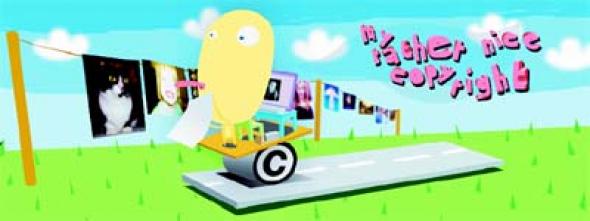The Opencontent.org Debacle
The fate of OpenContent is starting to resemble a bad joke: how many licenses doesit take to enforce the 'freeness' of certain content? Too many to be funny, as FlorianCramer explains
‘OpenContent is officially closed. And that’s just fine.’ With these words opencontent.org has welcomed its visitors since June 30th. Many of those who read them, however, are less enthusiastic. Opencontent.org, after all, is the site which coined the term ‘Open Content’ itself. It went online in spring 1998, just a few weeks after the term ‘Open Source’ had been invented by a group of Linux advocates around Eric S. Raymond to provide a slicker, business-friendlier alternative to the term ‘Free Software’ as it had been propagated since 1983 by the GNU project and its nonconformist head Richard M. Stallman.
‘Open Source’ was then translated into ‘Open Content’ by David Wiley, a specialist in educational computing. The Open Content License with which he launched Opencontent.org was basically a cut-andpaste of the GNU General Public License (GPL), only without the former’s preamble and appendix and with the word ‘program’ replaced by ‘OpenContent’. Then, in June 1999, the Open Publication License was released. It allowed authors and publishers to restrict the modification and commercial reprinting of their works and has been widely employed by anyone from big publishers of computer handbooks to whole websites. A Google search of ‘Open Publication License’ currently yields 1,9200 results. What now seems to be the end of OpenContent should in fact have been a transformation. The site has been superseded by the Creative Commons project in which Wiley has begun to work as a ‘Director of Educational Licenses’. Founded in 2001 by internet law expert Lawrence Lessig, Creative Commons is a general support platform for free information providing its own licensing scheme, a toolkit of 12 different licenses with special options for the attribution, commercial use and modification of a work. A web-based form [http://creativecommons.org/license/ ] makes it simple to choose the license that fits one’s needs.
As it turns out, both the original Open Content License and the Open Publication License are no longer supported by their creator. This could merely be seen as an acknowledgement of their outstanding problems: unlike the GNU GPL and its maintenance and support through the Free Software Foundation and Columbia University law professor Eben Moglen, opencontent.org neither had institutional support nor legal expertise for its licenses, both of which Creative Commons has in abundance. If Creative Commons and its licensing scheme becomes a similar focal point of Open Content activism as the GNU project for Free Software, it would also do away with the Babylonian confusion of mutually incompatible Open Content licensing schemes like the Scientific Design License (SDL), the Open Music License, the Open Audio License, the Free Art License and so on. Still, issues remain. By publicly stalling OpenContent and its licenses, Wiley failed to provide a sensible and smooth upgrade path from the Open Content website and licenses to their equivalents at Creative Commons. Instead, Wiley opted for a publicity disaster, in which he risks alienating people who have talked publishers or cultural and educational institutions into releasing work under the Open Publication License. While Wiley probably intended to act responsibly and give his project more solid foundations, in fact the self-defacement of the OpenContent homepage contributed to a wider perception of non-software copyleft as immature and unstable.
Part of that perception also stems from the fact that major Open Content licenses are, wherever they restrict modification and commercial use, incompatible with Free Software copyleft. Therefore, of the twelve Creative Commons licenses only four make works ‘free’ or ‘Open Source’ in the sense of the two standard – and technically identical – specifications of these terms, the Debian Free Software Guidelines and the Open Source Definition. The original Open Publication License and, ironically, the GNU Free Documentation License (which allows invariable sections in documents) are plagued as well with this issue; the Debian project, creator of Debian GNU/Linux, even considered moving all GNU FDL-licensed software documentation from its ‘main’ into its ‘non-free’ section.‘OpenContent is dead. Long live OpenContent’; David Wiley’s last words on Opencontent.org tell the story in its full ambiguity.
Creative Commons [ http://www.creativecommons.org ] Florian Cramer < cantsin@zedat.fu-berlin.de > is a lecturer in Comparative Literature in Berlin
Illustration > Dominik Binegger <dom_b_mail@yahoo.de >
Mute Books Orders
For Mute Books distribution contact Anagram Books
contact@anagrambooks.com
For online purchases visit anagrambooks.com








